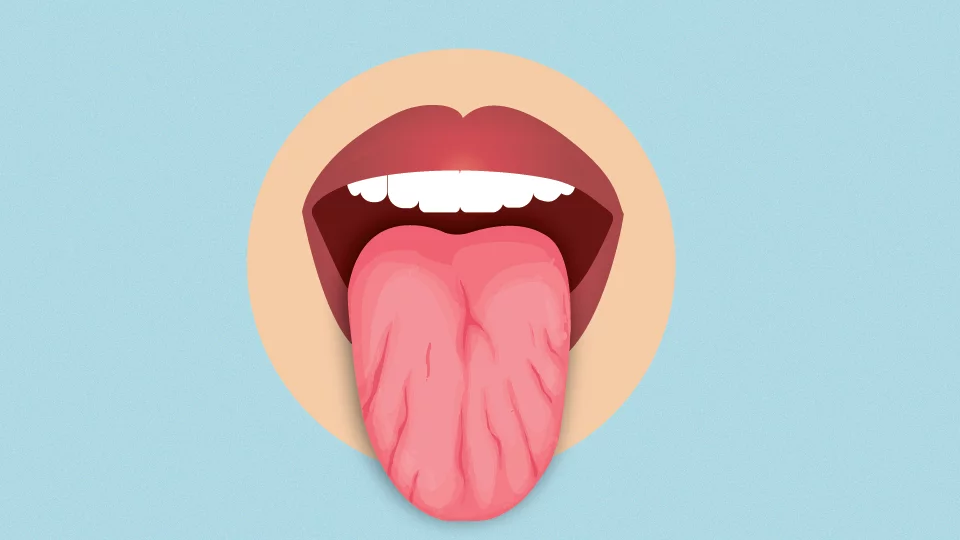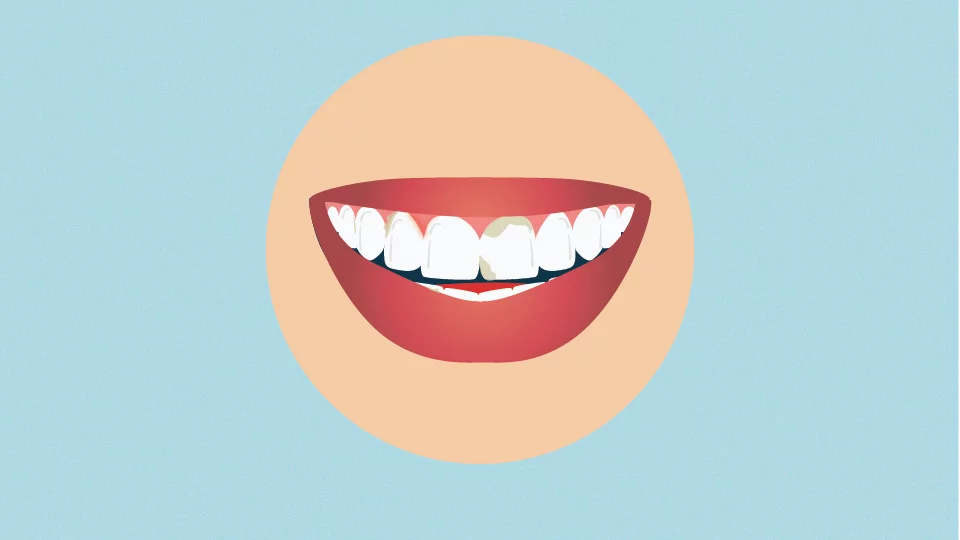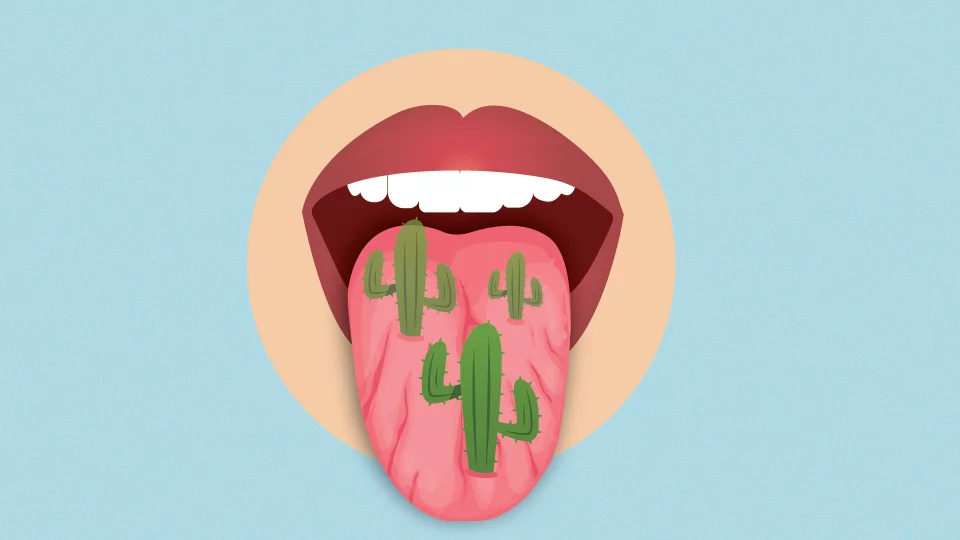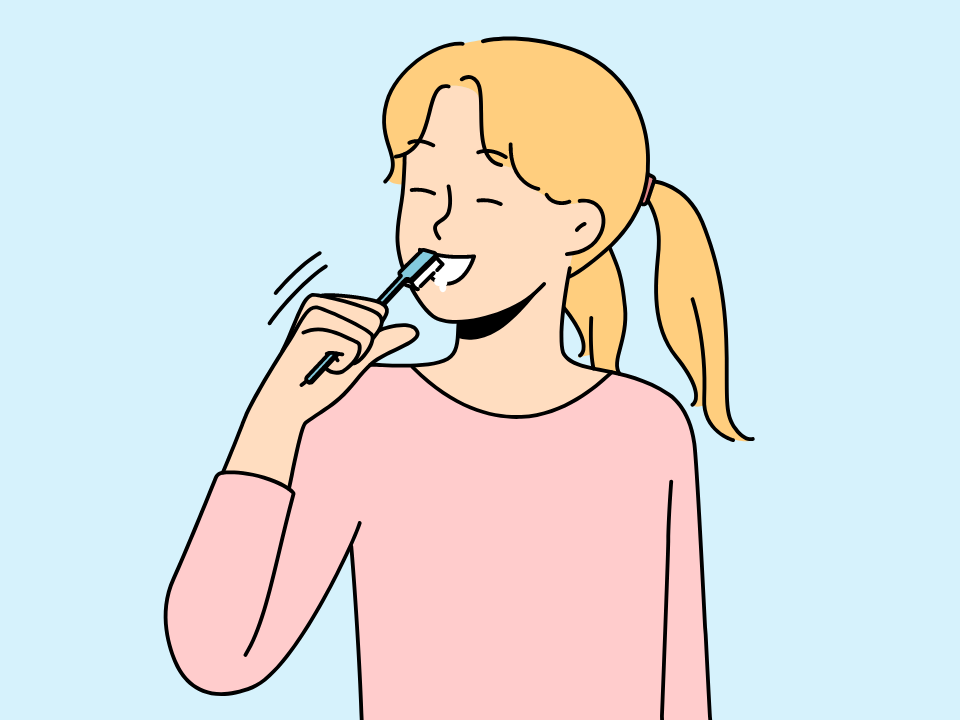The importance of saliva and the salivary glands' function can’t be underestimated. It is the substance that keeps your mouth moist, enabling a person to speak and starting the process of digestion. Saliva is produced by six main glands — three on each side of the mouth. When those glands don’t produce enough saliva to keep your mouth adequately moist, that results in a condition known as xerostomia, more commonly referred to as dry mouth.
Water makes up 99 percent of saliva. The other one percent includes substances such as calcium, enzymes, immunoglobulins, magnesium, mucins, potassium, proteins, and sodium.

Dry mouth can lead to all sorts of oral problems, such as throat and tongue issues, difficulty in performing basic mouth functions, and even bad breath.
Read on to learn more about the role saliva plays in your mouth and how a decreased level can lead to dry mouth.
Dry Mouth Causes
So what causes dry mouth? There are multiple reasons the glands in the mouth don’t function properly to produce the necessary amount of saliva.
Medications
Many medications, including over-the-counter drugs, cause dry mouth as a side effect. Medications that treat anxiety, depression, and high blood pressure can cause dry mouth. Some antihistamines, decongestants, muscle relaxants, and pain medications also result in dry mouth.
Cancer Therapy
Chemotherapy drugs can alter saliva makeup and the amount produced — this condition is sometimes temporary. Normal saliva flow resumes after treatment ceases. Head and neck radiation treatments can damage salivary glands. That greatly decreases saliva production — a condition that may be temporary or permanent.
Other Health Conditions
Health conditions besides cancer can also cause dry mouth. Some of those include Alzheimer's, diabetes, stroke, and thrush. Autoimmune diseases, such as Sjogren's syndrome or HIV/AIDS, can also bring about the condition. Lastly, snoring and breathing with your mouth open are also contributing factors.
Alcohol and Tobacco Use
Consuming alcohol and smoking or chewing tobacco products increase dry mouth symptoms.
Alcohol functions as a diuretic, so the body suffers a decrease in fluid volume from chronic alcohol intake. This leads to a higher thirst sensation or dehydrated feeling. Overall, significant alcohol consumption negatively affects the body's salivary flow rate. This is why people who chronically abuse alcohol or have a night of heavy drinking often experience dry mouth the morning after.
Long-term tobacco use substantially decreases saliva production. Saliva is also shown to diminish in smokers as they age. Saliva quality also differs. Smokers have thick saliva, while non-smokers have thinner, more watery saliva.

Aging
Seniors often experience dry mouth as they age. Factors exacerbating this condition include using certain medications, the body's inability to process medication, insufficient nutrition, and long-term health problems.
Anxiety and Stress
Anxiety and stress can decrease the mouth’s saliva flow and thus lead to dry mouth. Compounding this, certain medications designed to relieve anxiety also contribute to reduced saliva production.
Nerve Damage
Some injuries or surgical procedures can cause nerve damage to the head and neck area. Those conditions can result in dry mouth.
Recreational Drug Use
Methamphetamine and marijuana use can both cause dry mouth. Methamphetamine use, known as “meth mouth,” results in severe cases and can cause tooth damage.
The length that dry mouth lasts depends on what is causing it. Consult your dentist or another medical professional.
Symptoms of Dry Mouth
The following symptoms are indications you might have an issue with dry mouth:
Mouth Dryness
You might notice a feeling of dryness or stickiness in your mouth.
Irregular Saliva
Watch for saliva strands that are stringy and thick.
Bad Breath
That foul taste in your mouth might be more than what you ate for lunch.
Mouth Functions
You might find it difficult to chew, speak, and swallow.
Throat Issues
You could suffer from a dry or sore throat and hoarseness.
Tongue Issues
The tongue could become dry or grooved.
Taste Troubles
Your sense of taste may deviate from what you’re accustomed to.
Denture Discomfort
Issues could arise with wearing dentures.
Functions of Saliva
Besides keeping your mouth moist, you might be wondering — what is the function of saliva?
Saliva has many functions:
Lubrication and Moistening
Saliva lubricates the mouth tissues, throat, and tongue to aid with speaking. Think of how difficult it is to speak with a dry, sore mouth. You typically take a sip of water to quickly moisten your mouth. Saliva serves as a natural moistener.
Digestion
The digestion process is initiated by enzymes commonly found in saliva. Saliva softens food particles while lubricating the mouth and throat to ease chewing and swallowing. Both functions would be exceedingly difficult without saliva or with a significant decrease in saliva production.
Oral Hygiene
Saliva acts as a natural mouthwash as it can remove food particles from your teeth and help rinse leftover or stuck debris from your mouth. This action provides a built-in cleaning function that is constantly available with a healthy level of saliva.
How Saliva Protects Your Teeth and Gums
Another purpose of saliva is to protect your teeth and gums. It accomplishes this in multiple ways.
Neutralizing Acid
The cleaning process performed by saliva helps to remove acid from your teeth. That acid eats away at tooth enamel and makes teeth susceptible to decay.
Demineralization
Demineralization in teeth occurs when they lose minerals because they are exposed to bacteria from food and drinks consumed throughout the day. Calcium, phosphorus, and fluoride — all found in saliva — replenish those minerals and help repair tooth enamel. Tooth enamel is the hard surface that coats each tooth and protects it from harmful bacteria, plaque, and decay.
Fighting Bacteria
Plaque consists mostly of bacteria. If that plaque isn’t removed from your teeth, the bacteria begin to erode the enamel. The cleaning action of saliva helps to remove harmful plaque and bacteria from your teeth.
The Consequences of Low Saliva Production
Low saliva production contributes to other mouth health issues, including the following:
Dry mouth
The decreased function of salivary glands causes multiple issues, including:
Mouth feeling dry and sticky
Cracked or chapped lips
Mouth sores
Dry and rough tongue
Burning sensation in the mouth
Dry feeling in the throat
- Issues with speaking, tasting, chewing, and swallowing
Tooth Decay
An ample supply of saliva helps the mouth self-regulate the removal of bacteria and plaque that build up on teeth over time. If the mouth can’t clean teeth due to decreased saliva production, plaque and bacteria continue to collect on teeth. This can eventually lead to tooth decay, which causes a cavity. A dentist will need to fill the cavity. Left untreated, the cavity can require a more serious procedure, such as a root canal or an extraction.
Gum Disease
Gum disease will develop in a person’s mouth without practicing a regular oral care regimen. The self-cleaning process initiated by saliva helps keep teeth and gums healthy. It starts initially as gingivitis before morphing into full-blown periodontitis if left untreated.
Periodontitis destroys the bones that hold teeth in place. That causes teeth to loosen and eventually leads to tooth loss.
Tips for Maintaining Healthy Saliva Production
So now that the question "What does saliva do?" has been answered, here are some tips for maintaining a healthy saliva production level.
Staying Hydrated
Drink plenty of water or sugar-free beverages throughout the day to maintain hydration. You can even suck on ice chips. Sipping water with a meal also aids in chewing and swallowing.
Chewing Sugar-Free Gum
The chewing action stimulates saliva flow. Xylitol — often found in sugar-free gum — might even help prevent cavities, unlike gum containing sugar. The added sugar will contribute to tooth decay.
Suck on Sugar-Free Candies
Sucking on sugar-free candies or mints stimulates the flow of saliva. This action either maintains an adequate saliva production level or helps to increase it to avoid dry mouth conditions. You'll want to choose sugar-free options since sugar can cause tooth decay. The risk of developing tooth decay increases in folks who suffer from dry mouth.
Avoiding Alcohol and Tobacco
Alcohol and tobacco cause dryness and irritation to the mouth tissues. This also applies to mouthwash that contains alcohol.
Choose Decaf
Similar to alcohol, caffeine causes dryness in the mouth. You don't have to give up coffee or tea if you truly enjoy them, but opt for decaffeinated instead.
Breathe Through the Nose
Avoid breathing through your mouth, especially when you sleep. You might need to consult a medical professional if you snore at night. Snoring can be a symptom of a more serious health issue like sleep apnea.
Use a Humidifier
A humidifier adds moisture to a room. Breathing in that air, especially at night for the duration of your sleep cycle, can help minimize dry mouth symptoms.
Saliva Replacement Products
Rinses, sprays, and special kinds of toothpaste that help keep the mouth moisturized are available for purchase over the counter. Sprays are convenient because they're portable and take only a second to provide relief. Most saliva replacement products can be used as needed or as recommended by a physician.
Take Vitamins
According to the NHS, vitamin C helps keep blood vessels, bones, cartilage, and skin healthy. It also protects cells and heals wounds. Vitamin B also strengthens the immune system.
Find a Dentist Near Me
Consult your dentist to discuss any questions about dry mouth and saliva production. Or, check out The Smile Generation to find a dentist near you for all your mouth health needs. You can read patient reviews, peruse staff bios, and schedule an appointment online with a click of your mouse.
Find your trusted, local dentist today!
Sources
Smile Generation blog articles are reviewed by a licensed dental professional before publishing. However, we present this information for educational purposes only with the intent to promote readers’ understanding of oral health and oral healthcare treatment options and technology. We do not intend for our blog content to substitute for professional dental care and clinical advice, diagnosis, or treatment planning provided by a licensed dental professional. Smile Generation always recommends seeking the advice of a dentist, physician, or other licensed healthcare professional for a dental or medical condition or treatment.








